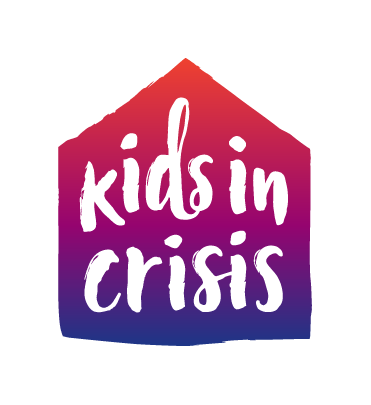By: Kimberly Lisack, LCSW
Kids In Crisis Clinical Director
I am afraid to fly. It is a true phobia that makes air travel completely emotionally exhausting for me. I am anxiety ridden for weeks leading up to my departure, uncharacteristically silent driving to the airport, desperate for reassurance waiting to board, and practically paralyzed with fear while in the air. Perhaps my fear of flying is related to not having control, or perhaps it is because I am not a pilot and therefore do not understand how a plane can actually fly.
There is a part of me that feels like I am on an airplane right now. We are flying through
thunderstorms, diverted to a different airport, and experiencing intermittent turbulence. The pilots are focused on flying the plane, they have little time to get on the intercom and assure us we will be alright, and the flight attendants have been instructed to sit down. Other passengers are nervous too. We look to each other for comfort, but it feels fleeting.
This plane will land, we may even be bruised and battered, but the plane will be on the ground eventually. So how do we take care of ourselves and each other on this extended turbulent flight? We may not be able to fly or land the plane ourselves, but thankfully, there are a number of things we can do to stay socially, emotionally, and psychologically grounded while we are ‘up in the air’.
First, remember social distancing is very different from socially isolating. Social Distancing is how we can help curb the spread of the virus. Socially isolating, however can potentially make us feel alone and hopeless. We need each other now, yet we are told to distance ourselves. The challenge is to find new ways to stay meaningfully connected. Of course, we will continue to text, as we have become a texting society, but more of my friends this past week have mentioned to me that hearing a loved one’s voice has been comforting in a surprising way. We can Skype, Facetime, email, and when done safely, we can, and should be walking, hiking, and talking to each other.
The news is worrisome, and stressful. And it will likely continue to be that way for weeks to come. This is a marathon flight, not a sprint trip. Pace yourself, and resist channel surfing news networks. Stick to one or two trusted sources, perhaps your local news channel and one or two national networks. Limit the frequency and duration of news ingestion. Consider a morning and early evening “check in ” with a break throughout the day. And definitely try to refrain from watching the hour or two before going to sleep.
Many of us are working remotely, our work day lacks the external structure our offices, classrooms, and buildings, and co-workers used to give us. We are tasked with creating our own structure and this can be stressful. There are many articles on how to be productive while working from home, read them, you will probably get one or two useful tips.
I encourage you to practice self-care during this time. Remember to tend to your basic needs. Get outside, exercise, shower, monitor your sleep and eating patterns, and try not to disrupt your pre-COVID-19 support ; for example, if you have a therapist, request a weekly Skype or Facetime session. If you have children, partners, or elderly loved ones in your care, remember why we are instructed to put our oxygen masks on before helping the people who are dependent on us.
